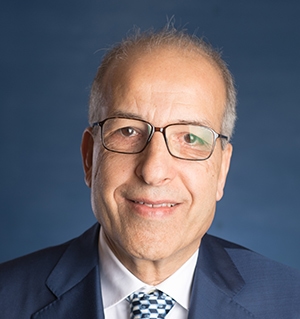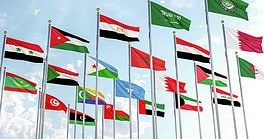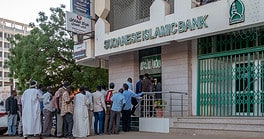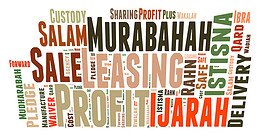Saddek Omar El Kaber, governor of the Central Bank of Libya, talks about navigating through turmoil, and the need for strong stable institutions.

Global Finance: Libya is once again in a state of war, with fragmented state institutions. How does the Central Bank navigate this situation?
Saddek Omar El Kaber: Political divisions in Libya and the escalation of the military conflict since April have led to increased instability, frequent closures of oil fields and ports, irregular access to basic services such as electricity and water, a liquidity crisis, and the expansion of the parallel payment market.
In light of these challenging developments, the Central Bank of Libya (CBL) has had to intensify its efforts to support the Libyan economy while maintaining neutrality and independence. We have prioritized the uninterrupted delivery of basic services to Libyans across the country, protection of state reserves and support of key state institutions. We have also had to ensure the stability of the country’s banking sector, on which Libyans depend for their daily livelihoods.
Back in September 2018, we worked with Libya’s key political stakeholders to develop an economic and financial reform program, which was designed to set the country on path to recovery. It allowed us to achieve some very positive economic indicators, with the Libyan dinar strengthening to 4.10 against the US dollar by August 2019 (from 9.75 in 2014) and the inflation rate falling from its peak of 28.5% in 2017 to a negative rate of 1.6% in February of this year. For Libyans, this meant greater stability in prices and a narrower gap between the purchase price in cash and other payment methods. However, this progress was halted by the renewed military actions.
GF: What are some of the lessons learned since 2011?
El Kaber: The developments in Libya following 2011 highlighted our economic fragility and our dependence on oil as a single source of income. Libya urgently needs to restructure and diversify its economy. We must seek alternative sources of income through the development of the private sector and the implementation of supportive policies.
Meaningful economic transformation requires time and a strong government capable of making bold and timely decisions. In the absence of effective and stable state institutions,
the CBL emerged as a primary authority to guide the Libyan economy’s restructuring. The extraordinary circumstances we found ourselves in highlighted the important role a central bank can, and must, play in the context of political divisions and conflict. The CBL guided the government on financial matters and promoted measures to rationalize public spending, as well as helping to regulate foreign trade and the use of foreign currency.
For example, we moved forward to introduce National ID numbers to prevent duplication in salary payments and ‘ghost’ employees, which contributed to reducing the government’s salary bill from LYD 25 billion (about USD 18 billion) to LYD 19 billion (about USD 13.6 billion) annually. We also advocated for the suspension of the food subsidy program that eventually contributed to saving LYD 2 billion (about USD 1.4 billion) annually.
GF: What is Libya’s position in the international financial system?
El Kaber: We have paid special attention to maintaining good working relations with our international counterparts. We benefit from having a strong international network and steadfast partners which has helped us manage a de-risking crisis, when several major international banks stopped dealing with developing countries due to money laundering and compliance risks. Today, the CBL in Tripoli is the only independent financial authority in Libya recognized by international counterparts.
GF: What are the main challenges you face with international partners?
El Kaber: De-risking has been one of the main challenges we’ve had to face in our dealings with international institutions—money laundering and terrorism financing precautions led some international banks to discontinue their relationships with banks in all conflict-afflicted countries. To mitigate against it, we implemented all the necessary related international requirements and compliance practices. This meant, in addition to the CBL meeting these requirements, that we had to urge other state institutions and local partners to meet them as well—not an easy task considering the ongoing conflict in Libya.
Another challenge for the CBL has been to ensure the effective management of our investments and deposits outside of Libya. To this end, we continue to collaborate with our international partners to overcome difficulties arising from Libya’s domestic political and security situation.



